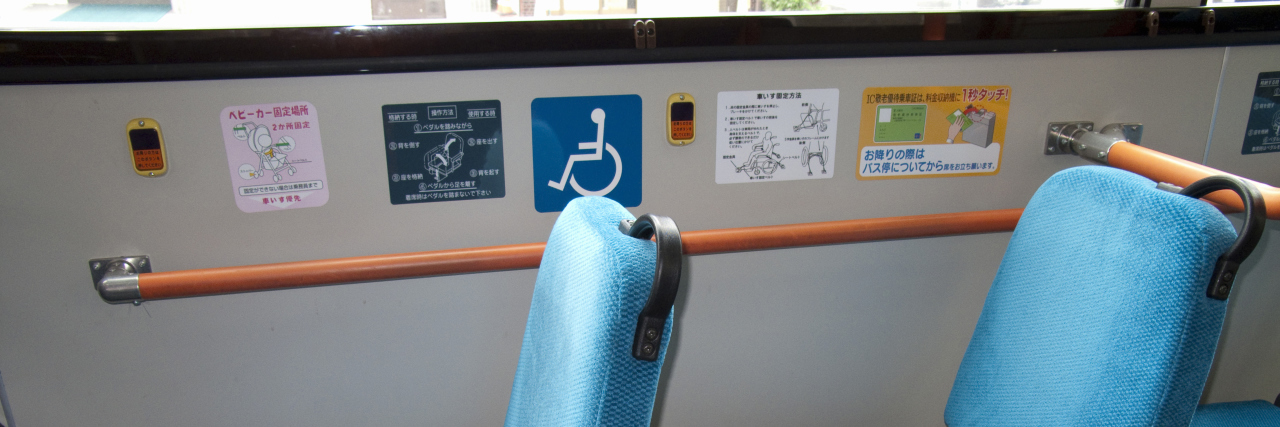For years I have had a theory bumbling around in my head. While strolling through my university’s library recently, I spotted a sign that seemed to define a central problem mainstream, able-bodied society fails to understand. The sign, which was posted by an elevator, said give priority to disabled people. For a moment this seemed normal to me, as it may to any of you. However, this is an alarming warning. Why do we need to post signs that ask people to consider the needs of others before their own, especially when it comes to using accessibility tools that were not created for them? Is this how we have become, and is this our future?
Fortunately, most people will try to accommodate the needs of people who are not able-bodied before considering their own. However, the fact that the sign in the library needed to be posted in the first place made me quite angry. Who was negligent enough to decide that a device created to assist people with disabilities was their own to use without considering their options in comparison to the person they disregarded?
We have been socialized in North America to turn our heads and look away from people with disabilities. Although many would argue that we act this way because we want to avoid making a disadvantaged person feel uncomfortable in a social setting, I believe we turn away because disability simply makes many people uncomfortable. Our socialization suggests that ability is good and disability
is bad, and therefore we degrade non-able bodies because they are different from ours.
The issue of intolerance surrounding disabilities has presented itself to me most often on public buses, where I constantly notice the “priority seats” being misused. When mothers with strollers, elderly people, pregnant women or people with physical disabilities board the bus, often these delegated seats have been taken by apparently able-bodied people. This sort of disregard for the needs of those with disabilities is concerning because it tells us something about our culture that we have not recognized.
I believe we often have a fear of identifying people who are weaker than us. This may make us less likely to offer our seat to, for example, an elderly man on the bus out of fear we will unintentionally offend by implying their fragility. But by acknowledging disadvantages and accommodating people’s needs without making any unsubstantiated assumptions, we are conveying a message of equity and understanding without demanding a testimony.
The sign I spotted at the library doesn’t just suggest consciousness of disabled people, it also contributes to a discussion about how we support the needs of others. The way our culture functions has affected the way we engage with people who are different from us. While it may be hard to rewire our responses, I believe it is time to re-evaluate the social ideologies that have defined disabilities, and rethink our use of public facilities intended for those who genuinely need them.
We want to hear your story. Become a Mighty contributor here.
Getty image by Payless Images.

